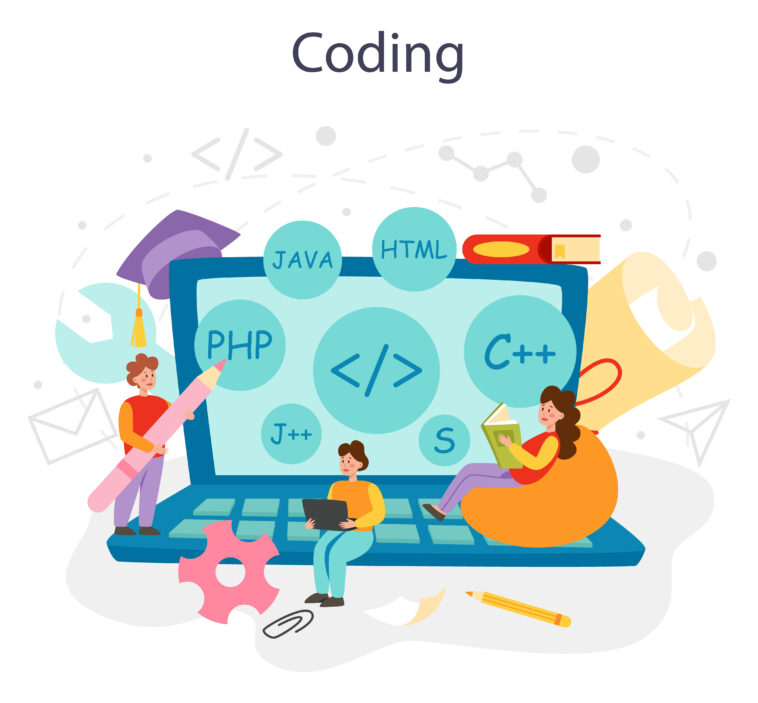In the ever-evolving landscape of web development, PHP remains a powerhouse, and its frameworks serve as pillars supporting developers in crafting robust and efficient web applications. The realm of PHP frameworks is as diverse as it is extensive, offering a plethora of options to suit varying project requirements, coding preferences, and development speeds. In this exploration, we delve into the spectrum of PHP frameworks, discussing the emergence of new frameworks, the differences among them, and their roles in modern web development.
Understanding the PHP Framework Landscape
PHP, a server-side scripting language, has gained immense popularity due to its flexibility and ease of use in web development. With the aid of frameworks, developers can expedite the development process by utilizing pre-built modules, libraries, and templates.
Which PHP Framework to Choose?
The question that often arises for developers embarking on a new project is: “Which PHP framework suits my needs best?” The answer depends on several factors, such as project complexity, scalability, performance, learning curve, and community support.
Exploring Different PHP Frameworks
- Laravel: Among the most popular PHP frameworks, Laravel stands out for its elegant syntax and a rich ecosystem. It prioritizes developer experience, offering features like ORM (Object-Relational Mapping), authentication, and a powerful templating engine, Blade.
- Symfony: Known for its stability and extensibility, Symfony provides a set of reusable PHP components that can be integrated into various projects. It emphasizes code reusability and follows the best practices of web development.
- CodeIgniter: Regarded for its lightweight nature and straightforward configuration, CodeIgniter appeals to developers seeking simplicity without compromising on functionality. It facilitates rapid development and has a shallow learning curve.
- Yii: Yii, known for its high-performance capabilities, focuses on efficiency and security. It comes with caching support, RESTful API development, and Gii, a powerful code generation tool.
- CakePHP: With its convention over configuration approach, CakePHP simplifies development by reducing the need for repetitive coding tasks. It emphasizes security and offers features like built-in validation and ORM.
- Phalcon: Phalcon distinguishes itself by being a C-extension-based framework, optimizing speed and efficiency. Its lower-level architecture results in high performance, making it suitable for high-traffic applications.
The Rise of New PHP Frameworks
In the dynamic landscape of web development, new PHP frameworks continuously emerge, aiming to address modern development challenges and adapt to evolving industry trends. These newcomers often introduce innovative features, improved performance, and enhanced developer experiences.
Exploring a New PHP Framework
The realm of new PHP frameworks introduces exciting possibilities for developers. Consider a new entrant that emphasizes real-time capabilities, microservices architecture, or AI integration. Such frameworks bring fresh perspectives and solutions to the table, inviting developers to explore novel avenues in web development.
Evolution in Web Frameworks PHP
The evolution of PHP frameworks reflects the evolution of web development practices. Over the years, these frameworks have evolved to accommodate changing paradigms, incorporating new technologies, and embracing best practices to ensure scalability, security, and maintainability.
Adapting to Modern Web Development Trends
Modern web development demands responsiveness, scalability, and adaptability to diverse devices and user experiences. PHP frameworks continually evolve to embrace these trends, integrating features for responsive design, API development, progressive web apps, and serverless architectures.
Embracing Framework Diversity in Development
The spectrum of PHP frameworks isn’t just about choosing one; it’s about understanding their nuances and leveraging their strengths. Here’s how:
- Scalability and Performance Optimization: Assessing the scalability and performance benchmarks of each framework is crucial. Laravel might shine in rapid development, while Phalcon might excel in high-traffic scenarios. Understanding these differences allows for informed decisions based on project requirements.
- Community and Support: A framework’s community and support ecosystem are invaluable. Laravel’s robust community might offer extensive documentation and resources, aiding newcomers. Symfony, with its enterprise-level support, could be ideal for large-scale applications.
- Learning Curve and Familiarity: Developers’ familiarity with a particular framework can significantly impact project timelines. CodeIgniter’s simplicity might suit quick prototyping, while Yii’s learning curve might be worthwhile for its high-performance advantages in complex projects.
- Adaptability to Trends: Evaluating how frameworks adapt to emerging trends is pivotal. Newer frameworks might embrace modern paradigms like serverless architecture, GraphQL, or headless CMS integrations, offering forward-looking solutions.
The Role of PHP Frameworks in Future Development
As the web framework php development landscape evolves, PHP frameworks will continue to play a crucial role in shaping the digital world. Their evolution will likely revolve around:
- Integration and Interoperability: Frameworks might emphasize seamless integration with emerging technologies like AI, IoT, or blockchain. Facilitating interoperability will be key to harnessing these innovations.
- Sustainability and Security: With cyber threats on the rise, frameworks will heighten their focus on robust security measures and sustainable coding practices, ensuring safer and more maintainable applications.
- Ecosystem Expansion: Expect frameworks to expand their ecosystems, providing more comprehensive toolsets for tasks like testing, debugging, and deployment, streamlining the entire development lifecycle.
- Performance Enhancement: Continuous optimization for speed and performance will be a priority, especially in the context of evolving hardware and user expectations.
Conclusion: Harnessing the Diversity
The landscape of PHP frameworks presents an array of choices, each catering to distinct development needs and philosophies. Choosing the right framework involves evaluating project requirements, considering scalability, performance, community support, and aligning with the developer’s proficiency and preferences.
As new PHP frameworks emerge and existing ones evolve, the diversity within this ecosystem offers developers a broad canvas to innovate, experiment, and craft exceptional web experiences. The key lies not just in choosing a framework but in leveraging its strengths to create robust, scalable, and efficient web applications that meet the demands of the digital age.
This post was created with our nice and easy submission form. Create your post!



Comments
0 comments